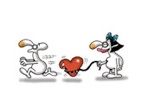




IN healthy families, infants are given the security
& safety of being first symbiotically attached to
the mother & then, as it grows, allowed to
develop it’s own identity, creating a sense of
separateness without the threat / fear of
disconnection, punishment or abandonment.
This was not the case for us as CoAs. We rarely
had the comfort of the initial symbiosis, but
were always treated as mere extensions of our
parent / caretakers.
So, NOW we assume ‘love’ is the same as being
‘one with the other’ (symbiotic narcissism) &
that we have a right to....
... always be agreed with (because disagreement
is = to disloyalty)
... always have our own way, since we never did
as kids
... be taken care of (everyone becomes a potential
parent-substitute)
... be understood, completely, all the time
... have others automatically know our needs &
respect our rights (mind-read)
... never be felt, or left alone (take others
hostage)
... take care of other adults (who dies & made
us god?)
... the other person’s soul (their deepest
thought, emotions, secrets, etc) ☛
RELATIONSHIPS
WE RELATE , IN ORDER TO...
... be happy, yet we become unhappy
... get joy, yet experience misery
... be sociable, yet become argumentative
... have friendships, yet make enemies
... gain strength , yet become weak
... have courage, yet become afraid
... gain confidence, yet become doubting
... connect, yet feel abandoned
... be whole, yet become empty
... be secure, yet become anxious
... be nurtured, yet become unseen, uncared for
... be loved, yet become resented, even hated
... find ourselves, yet become increasingly
alienated
... cope with life, yet invite sickness & death
IN RECOVERY - we learn to relate simply to
know others (not use them), & to express our
unique selves (not to be used).
WE are the ‘cake’, others only the ‘icing’!

• allows little growth of the individual
• attempts to change the other
• attempts to take care of others’ feelings
• cannot define ego boundaries
• demands & expects unconditional love
• exhibits sado-masochism
• fear of abandonment when separated
• fear of letting go
• fear of risk, change, the unknown
• feels all-consuming
• gives in order to get
• lacks true intimacy
• looks to the other for affirmation & worth
• needs the other to be secure, feel complete
• plays games (Victim, Rescuer, Persecutor)
• plays power games, is controlling
• recreates old painful emotions
• refuses to make a commitment
• seeks solutions outside of oneself


• accepts endings ( not devastating)
• accepts limitations in self & the other
• affirms the equality of the self & the other
• allows for individuality & differences
• brings out the best in both
• cares, with detachment, doesn’t try to fix
• doesn’t try to control or change the other
• does not crave unconditional love
• encourages self-sufficiency
• enjoys ones solitude
• experiences openness to change
• experiences separateness, comfortably
• experiences true intimacy
• expresses emotions spontaneously
• feels comfortable getting ones needs met
• feels free to ask honestly for what is wanted
• finds commitment acceptable
• gives & receive, equally
• has high self-esteem
• invites growth in the other
• trusts the memory of the other when apart
• welcomes closeness, risks vulnerability
A few times in like we may be lucky enough to
experience being loved & understood ‘perfectly’.
This is not a matter of our right, not owed to us.
It’s a gift - a matter of grace. It cannot be earned!
As adults, we’re responsible for giving ourselves what
we need so that when we get it from others it’s a
bonus, freely given. Then we’re more likely to
experience being seen, valued & understood, in a
healthy relationship.





Home • SITE MAP • About Me • ACoA Traits • Article • Books • Boundaries • Co-Dependence • Course • Decisions • Definitions • Effective Responses • Emotions • Family Roles • Friends • Healthy Rules • Inner Child • Links • Love • Recovery • Relationships • Toxic Rules • Trust

Adult-Children of alcoholics & other narcissists

